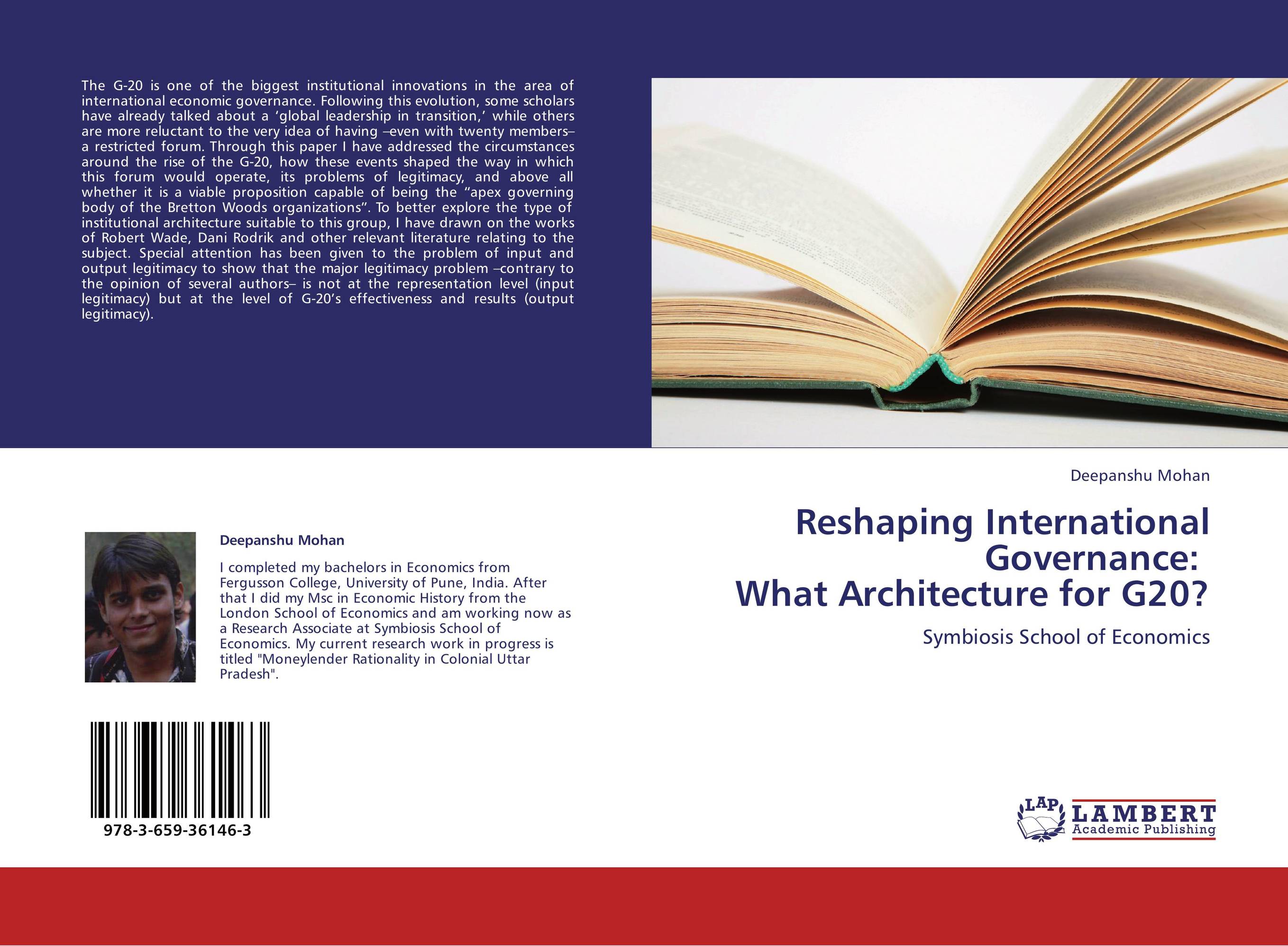| Поиск по каталогу |
|
(строгое соответствие)
|
- Профессиональная
- Научно-популярная
- Художественная
- Публицистика
- Детская
- Искусство
- Хобби, семья, дом
- Спорт
- Путеводители
- Блокноты, тетради, открытки
Reshaping International Governance: What Architecture for G20?. Symbiosis School of Economics

В наличии
| Местонахождение: Алматы | Состояние экземпляра: новый |

Бумажная
версия
версия
Автор: Deepanshu Mohan
ISBN: 9783659361463
Год издания: 2013
Формат книги: 60×90/16 (145×215 мм)
Количество страниц: 56
Издательство: LAP LAMBERT Academic Publishing
Цена: 29648 тг
Положить в корзину
| Способы доставки в город Алматы * комплектация (срок до отгрузки) не более 2 рабочих дней |
| Самовывоз из города Алматы (пункты самовывоза партнёра CDEK) |
| Курьерская доставка CDEK из города Москва |
| Доставка Почтой России из города Москва |
Аннотация: The G?20 is one of the biggest institutional innovations in the area of international economic governance. Following this evolution, some scholars have already talked about a ‘global leadership in transition,’ while others are more reluctant to the very idea of having –even with twenty members– a restricted forum. Through this paper I have addressed the circumstances around the rise of the G?20, how these events shaped the way in which this forum would operate, its problems of legitimacy, and above all whether it is a viable proposition capable of being the “apex governing body of the Bretton Woods organizations”. To better explore the type of institutional architecture suitable to this group, I have drawn on the works of Robert Wade, Dani Rodrik and other relevant literature relating to the subject. Special attention has been given to the problem of input and output legitimacy to show that the major legitimacy problem –contrary to the opinion of several authors– is not at the representation level (input legitimacy) but at the level of G?20’s effectiveness and results (output legitimacy).
Ключевые слова: United States, Bretton Woods, G-20, International governance, IMF.



